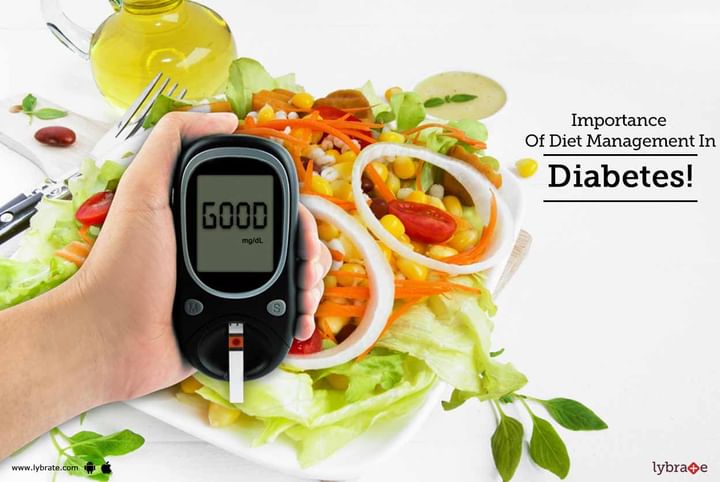Importance Of Diet Management In Diabetes!
For diabetics, healthy eating is essential. This can be the most important tool available in managing diabetes and blood sugar fluctuations. This is because what a person eats has a direct effect on their blood sugar levels. When food is digested, it is broken down into a form of sugar known as glucose. This powers the body and acts as an energy source. For this, the body needs insulin. In the case of diabetics, insulin does not function the way it should or is not present in the required amounts. This causes the glucose to remain in the blood and in turn spikes blood sugar levels. The good news is that diabetes can be controlled. This is where the person’s diet plays an important role.
Not all food causes an increase in blood sugar levels. The effect of a food item on a diabetic depends on how it affects the body’s ability to process glucose. Processed foods, fatty foods, food with added sugar etc. can cause a spike in blood sugar levels. However, fruits and vegetables do not have the same effect. Foods that have a high glycemic index do not keep a person satiated for long but cause blood sugar fluctuations. On the other hand, foods with a low glycemic index do not cause blood sugar fluctuations and keep hunger satiated for longer. Hence, the former should be avoided as far as possible. Replace processed grains with whole grains, red meat with lean meat or fish and add plenty of beans and legumes to your diet. Trans fats should also be avoided.
Eating right can also help with weight management. Being overweight puts additional pressure on the insulin available which leads to frequent blood sugar fluctuations. Eating right accompanied by regular exercise is crucial to weight management. Keeping your weight under control can even help prevent diabetes especially in cases, where a person has a high genetic risk of developing diabetes. This can also help reduce the risk of further complications.
When it comes to diabetes, eating at the right time is as important as eating the right food. Diabetics should not leave long gaps between their meals. This is because having a gap of more than 3 hours can destabilize blood sugar levels and be dangerous for the patient. Hence, a diabetic should eat smaller, more frequent meals. It is also a good idea for a diabetic to monitor sugar levels before going to sleep and after waking up. In case you have a concern or query you can always consult an expert & get answers to your questions!



+1.svg)
